Where We Are, and Where We’re Going
Posted by estiator at 8 May, at 14 : 56 PM Print
COVER STORY
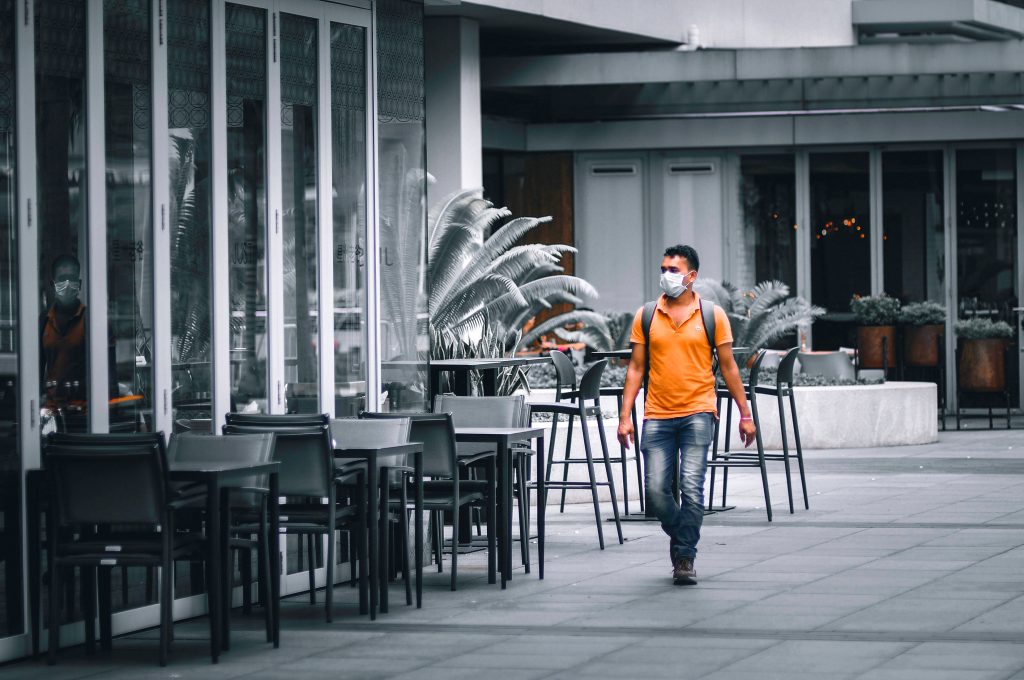
Six restaurateurs from across the United States spoke to us about how they are keeping their businesses alive and what they foresee for the year ahead.
INTERVIEWS BY MICHAEL KAMINER
GREEK COOKING has thrived over thousands of years. It has comforted generations through wars, plagues, and economic depressions. It’s warmed souls at comfortable kouzinas, raucous tavernas, and homey diners.
But the COVID-19 pandemic has upended everything—every forecast, business model, and succession plan. It has forced restaurateurs into agonizing choices about employees and partners. And it has pushed even well-established restaurants to rethink or remake their operations.
How are owners, chefs, and operators coping? Estiator spoke to six of them across the country to hear, firsthand, what it’s been like navigating the toughest crisis most of us have seen in our lifetimes.
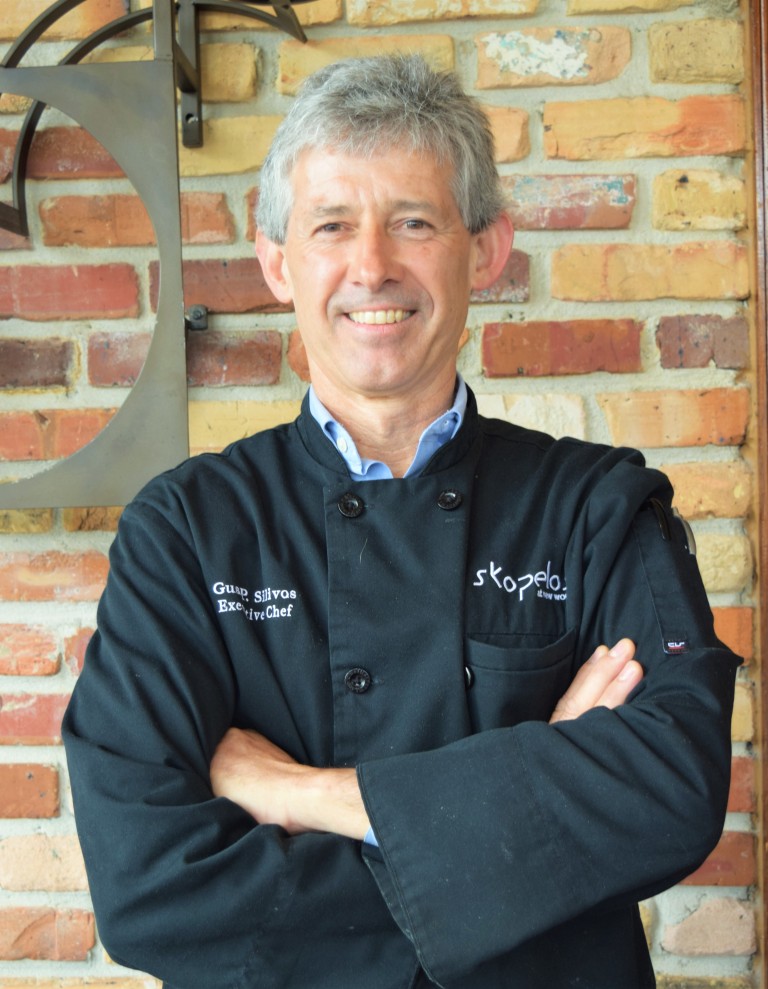
Chef Gus Silivos, owner
Owner, Skopelos at New World
Pensacola, Florida
A Pensacola fixture since 1959, Skopelos moved toits current home downtown in 2016; notable customers have included former President and First Lady George and Barbara Bush.
THIS BUSINESS has been in my family for 60 years.We have employees who’ve been with us as long as three decades.The most difficult part of shutting down was that we didn’t have as much work for them.We did as much as we could to supplement that with curbside pickup and deliveries.But it wasn’t as much, because every restaurant went into that mode.
Obviously, all of this has been very difficult from the standpoint of business.To begin with, there was a lot of misinformation. People were hesitant to get food from restaurants.In reality, a unique thing about our industy is our process of handwashing and sanitizing on a regular, day-to-day basis.We do it, we’re accustomed to it, we’re aware of it.In, say, office environments, it’s not second nature.That’s helped us a lot, and we’re going to continue focusing on that, and making people more aware of it.
In the meantime, we’ve edited down our menu to our most popular items— signature dishes like scampi Cervantes, grouper Margherita, and steaks, which have been tough to find in grocery stores.We’ve added a 25 percent discount, including our wine, which is already modestly priced.It’s a great value, and since people can’t have the experience of a dining facility, it’s a way to give some value back to guests.From the standpoint of a fine-dining restaurant, people don’t come in because they’re starving.They come for the experience.
After this, we’ll probably reverse course in the manner in which they closed us down.We’ll probably go to 50 percent with some protective measures, and as that continues, we will slowly be able to reopen and get to the level we were.How long will it take?That depends on new cases, and people coming out of isolation.
The biggest thing is to realize that we’re not going to be in full force.Income will be limited.Employees will not be coming back, some because of underlying health issues, some because it’s not possible for us financially.It’s important to rethink how we handle things from the perspective of health—a segment of the population here and nationally will be very skeptical about coming in contact in public places.We’ll need an education transformation to get people comfortable, at least six months.
We’re in such a low-margin business that it doesn’t take much for cash flow to knock you off-base.I hope we can all pull together as a country.
[Note:On Monday, May 4, the State of Florida allowed restaurants to reopen with restricted occupancy and strict social-distancing rules].
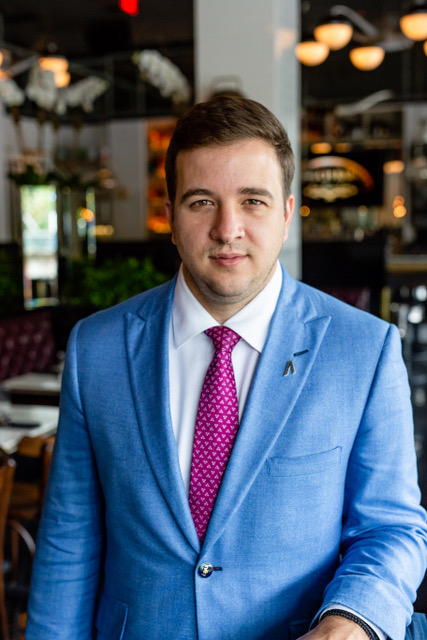
Alex Smith
Founder and president, Atlas Restaurant Group
Atlas Restaurant Group’s 15 eateries include Ouzo Bay in Baltimore and Houston; Ouzo Beach in Baltimore; and Loch Bar in Baltimore, Boca Raton, FL, and Houston
WE DID NEARLY $49 million in business in 2019, and we were on pace to reach $85 million this year.When the pandemic hit, we closed 14 of our 15 restaurants—only Harbor East Deli, our diner and deli spot, had done carryout and takeout before.Our revenue is nearly at zero now.
In Baltimore, where we have most of our restaurants, we normally have a lot of traffic from surrounding counties.But people are no longer coming into the city from 20 minutes away.And in the city itself, there’s not enough density to support takeout and delivery.It would have been a money-loser for us.
I think the pandemic might sink 30 to 40 percent of restaurants in this country.For many operators, cash flow stops, but they still owe money.There’s no capital to buy products to stay open.They might have a bank loan or rent to pay.You can’t afford to pay a chef or manager.And there’s no insurance, because the insurance industry has failed the restaurant business.
We’ve had to furlough 800 employees.We’ve kept 50 key people on our team.We’re in constant contact with our hourly employees, with grocery giveaways, fundraising drives, and helping them file for any government subsidies.My brother and I are borrowing money and paying bills out of pocket to keep the company going.
I see things happening in waves from here.Wave one is that we’ll survive and reopen every one of our properties.We can realize in financial terms what our losses will be.But what scares me is wave two.Say business comes back 100 percent but the government says you can only have 50 people, not 100, or tables have to be six feet apart instead of two feet.They are mandating how much business you can do.
That’s what our team is preparing for now—surviving.For wave two, all salaried employees are taking a reduction in pay.My brother and I are taking no salary.We’re not cutting quality, but we are cutting entertainment.We’re asking for rent abatements or deferments.And PPP [the Small Business Administration’s Paycheck Protection Program] is going to be critical. It gives you an eight-week cushion, which will allow us to bring everyone back into the workforce.
Our purveyor relationships will stay the same.Food costs will drop.Other costs will go up—things like neoprene gloves and sanitizer.The scariest part for us is, are people going to come back, and how long will it take?When does the comfort factor come back?How can you maintain atmosphere?Those are the big questions.
Stamatis Bilis
Owner, Stamatis, Astoria, Queens, New York City
(Interviewed and translated from Greek by Gina Kallitsis)
The Gayot restaurant guide called Stamatis a “Queens gem… Good Greek fare—and lots of it—at way beyond reasonable prices.”
MY BUSINESS has dramatically changed since the pandemic hit. It’s very hard to adapt to the new situation. We have so many current liabilities. The rent is very high, as well as the electric bill. I pay $8,000 every month to the electric company. I don’t know when we’ll open again, or how we’ll manage to pay the employees. The only thing we can do is work hard and struggle to survive. We have adopted a delivery system in order not to lose our clients, but we don’t earn much, and we can hardly afford to pay the wages.
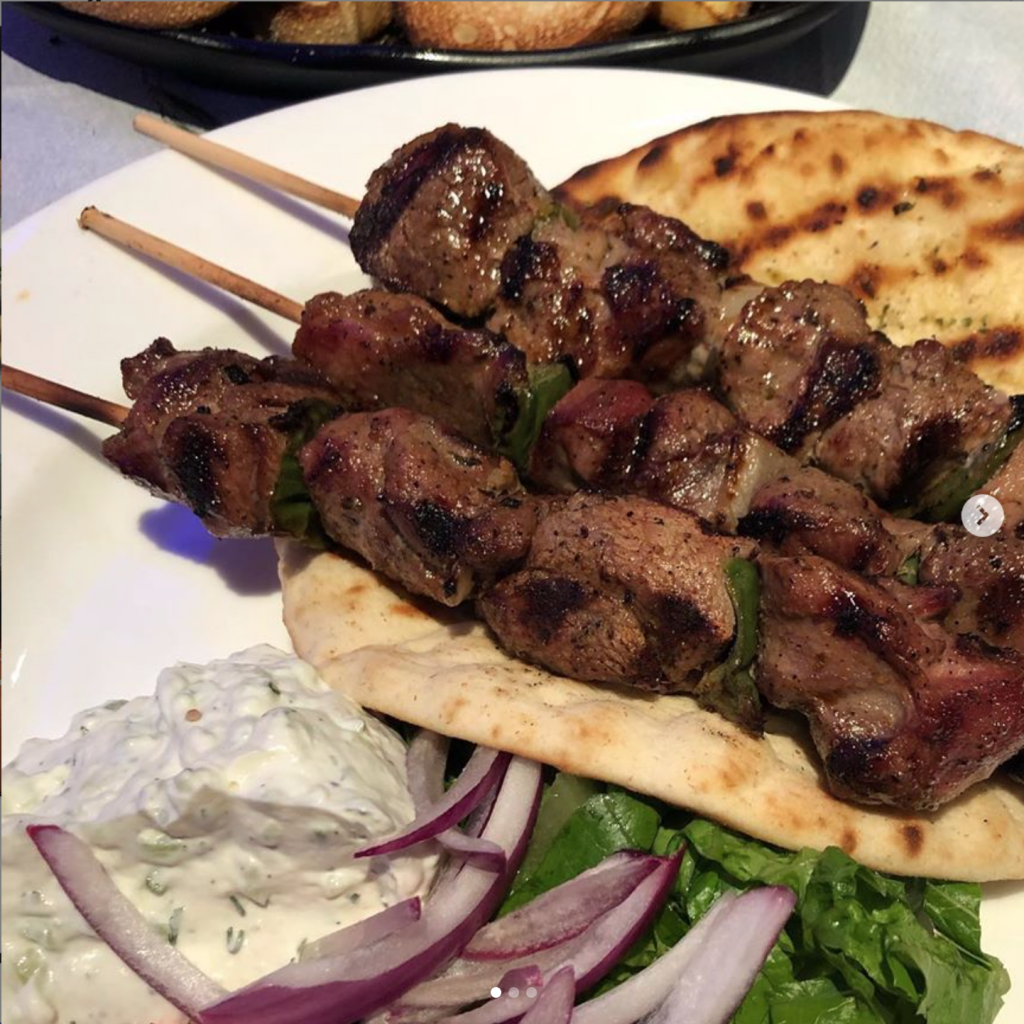
Everything is going to change after this—the economy, real estate, property, employment, business. Only the wealthy won’t face these problems the way the rest of the humanity will. We are all going to face a dramatic change in the rhythm of our lives. The cost of living will increase even more. That’s why we always must be very cautious. We must always bank part of the money we earn to survive when things get harder.
I am not preparing yet for tomorrow because I can’t predict anything. I don’t know what will happen and how. The only thing that matters is to have a wage, a salary—especially for young people, who deserve a better future. It will be very difficult for them.I am 85 years old, I have lived my life. I worry about my children and grandchildren.
The future of the restaurant industry will be dark. Many restaurants won’t survive the crisis. I think that 30 percent of them will shut down after the pandemic. They will decrease in number. I say so because it is impossible for a business to survive if it has to pay high rents, salaries, bills. After a month or more without income, how will they survive?
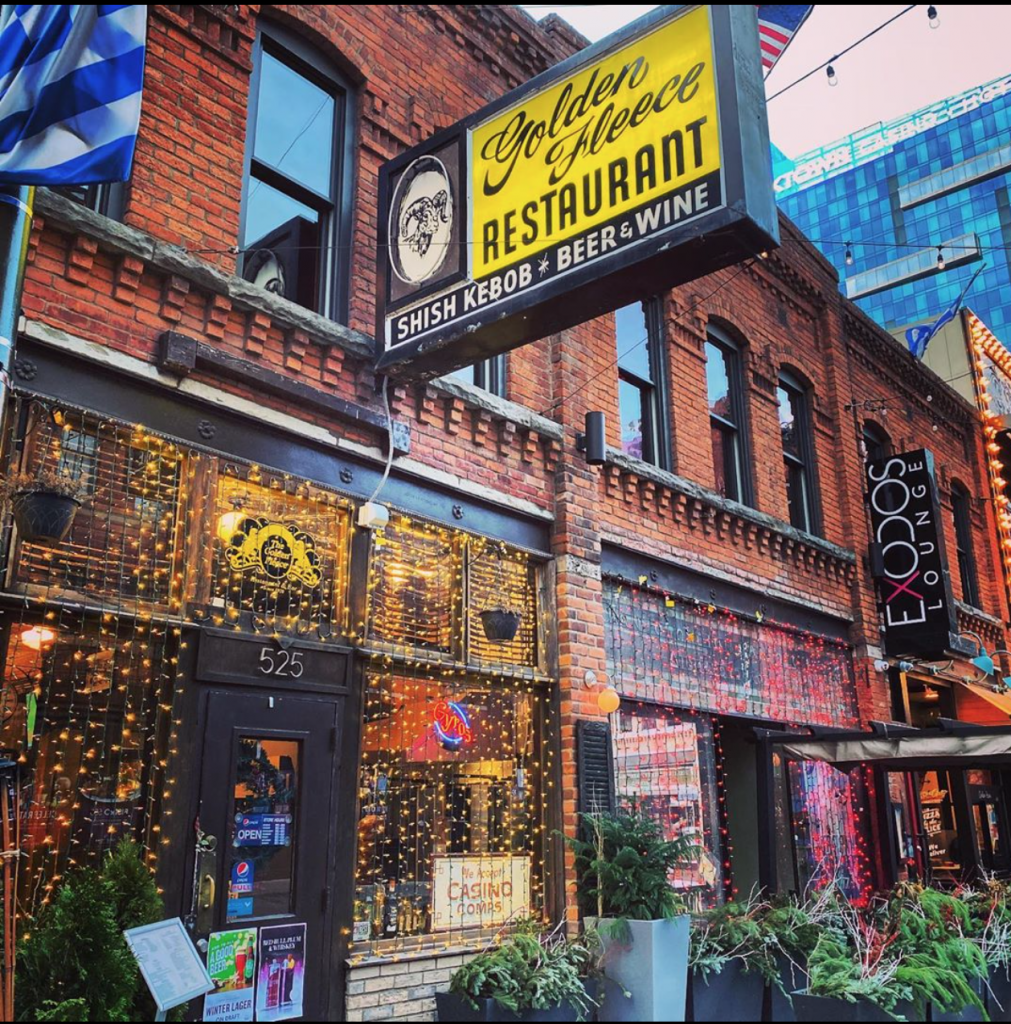
Spero Dionysopoulos, owner
Golden Fleece, Detroit
Opened more than 50 years ago by Spero Dionysopoulos’ father and uncle, Golden Fleece is the longest-standing restaurant in Detroit’s Greektown neighborhood.Dionysopoulos also co-owns the hugely popular Exodos Lounge, an adjacent rooftop bar and nightclub.
THIS RESTAURANT has been our bread and butter for 50 years.When the pandemic started, we stayed open for carryout.It did OK, but not like we’d anticipated.It’s doing better now.We’re doing a lot of carryout for front-liners, like police and firefighters.We don’t have everything on our menu, but about 70 percent of it is available.Our gyros are the most popular item.They’re 100 percent lamb, and what we’re known for.
We had 30 employees, some of whom have been with us for decades.All of them are on unemployment now—it’s just me and my cousin here.Our next steps will depend on what the governor does.I anticipate seeing less dining in the dining room.We’re a family business, so we had 20 tables crammed into a small area.We’re going to have to have half of that, which means less revenue and less employees.
We also have an open kitchen in front with gyros spinning, and grills where we cook kebabs.Maybe the way of the future is to have Plexiglas across the front.It’s going to be way less personal—our place is very family-oriented.It was a party atmosphere.It felt like a place in Greece.I hope that can continue, but it’s hard to say.
To promote the restaurant, we’re doing a lot more Facebook and Instagram than we used to.In Detroit, everyone lives in the suburbs.Ball games and events like St. Patrick’s Day, when people come into the city, were always busy for us. We’re more of a destination stop.We’re in all the tourist guides.But our customer base is not there now.The city of Detroit looks like a ghost town.Most people are getting carryout from local restaurants in the suburbs.My friends who have restaurants in the suburbs have seen maybe a 10 percent decreases in business.We’ve seen a 70 percent decrease, if not more.
Our relationships with purveyors and suppliers haven’t changed.They’re still providing service to us, just a lot less.It’s the same people, just wearing masks and gloves. Instead of getting orders two or three times a week, we’re getting them maybe once a month.
Our nightclub, Exodos, is very popular.We’re scared it may not reopen for a year.And we’re not even sure how we’ll be able to reopen.When the pandemic started, we also had to pause another project.We’re remodeling a building next door that housed a Greek market for 100 years.We plan to turn it into a market again—we even have a name, Bakaliko, which means “gathering place” in Greek.Of course, we’ve had to stop.
The only silver lining to all of this is that we’re finally remodeling the restaurant, since it’s closed.But it’s taking forever to get building materials.
What happens next?I think the first year’s going to be tough.People are going to adhere to social distancing; they may be cautious about being next to each other.This is more hoping, but in the second year, we’ll be back to normal.But I could be wrong.
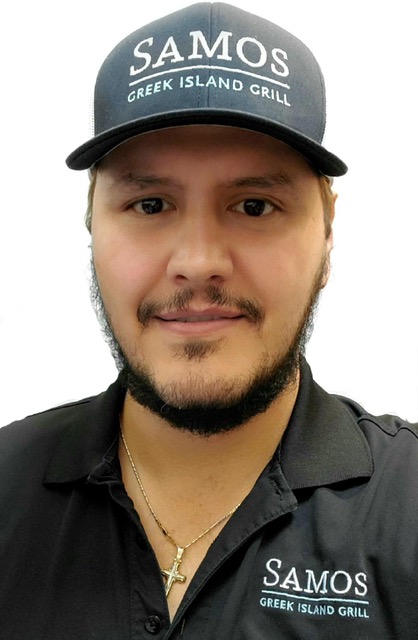
Michael Georgalas, founder and owner
Samos Greek Island Grill, Baltimore
With two locations in Baltimore, Samos Greek Island Grill is the fast-casual spinoff of legendary Baltimore Greek restaurant Samos, opened by Michael Georgalas’ father, Nicholas, in 1977.
MY WIFE AND I run Samos Greek Island Grill, which we opened seven years ago.My father is still running the original Samos.
We used to be right around 50/50 between dine-in and carryout.Once indoor eating was banned, we had to make adjustments.We’d never used a delivery service, because we thought it would cut into profits too much.But in this situation, you have to make changes.To keep our employees working, and to keep food moving so that everything stays fresh, we understood we’d have to take a hit on profits.So we started a contract with UberEats.
Both of our locations are near mixed residential and commercial areas—a lot of offices, but also a lot of apartments and rowhouses. Obviously, sales are down, but we’re not struggling as much as full-service or high-end restaurants.A lot of Greek places are built for carryout.And we’ve kept our full menu, which was already pretty scaled down.
We still sell a good amount of everything. What’s moving the most?Gyros and wraps—comfort food.But we also have healthy options; people are stuck in their houses and eating a lot, so we’re selling a lot of salads with grilled chicken and vegetarian dolmades.I’ve seen a big increase in demand for dessert.We’ve had to cook extra baklava and rice pudding.People are looking for that comfort. Looking forward, we may have issues with product availability; if we can’t get certain items, we’ll adjust.
Our location in Canton [a historic downtown waterfront neighborhood] seats about 45 inside and 40 outside.We might have fewer people eating inside now, but a lot of them are eating outside or taking it to go and eating in cars.Our tables are already spaced out, so I haven’t really thought about the need to space out indoor seating.Maybe we’ll remove a couple of tables.But customers will understand it’s the new normal.
Obviously, our sales are down, but I think we’re going to rebound a little faster than other places.Our price points are good compared to full- service restaurants.People get in and out pretty quickly.We’ve been doing curbside pickups.Once the restrictions get lifted, slowly but surely we’ll get back to where we were.
Usually at lunchtime, we have a line of people waiting to order.For distancing, we already have lines taped on the floor to help them distance.I trust people to make smart decisions.I don’t think they’ll be on top of each other.
Our original location has been around for 43 years.We’re lucky we have the roots established, and that people know us.We’re in a tight-knit community here, especially the Greek community.
ChrysChrys
Owner, Papa Cristo’s, Los Angeles
A family business started by Chrys’ father more than 70 years ago, Papa Cristo’s now includes a sprawling market and restaurant featuring Greek foods and provisions exclusively.Los Angeles magazine recently called Chrys “a social media sensation.”
WE’RE AN UNUSUAL PLACE. We’re a full Greek market, which started in 1948, and we added a restaurant in 1985 to showcase all the fabulous Greek foods we sell.We’ve had the same phone number, address, and suppliers for years.We’re known for being very Greek. We only sell Greek beers and wines.We don’t sell corn flakes or potato chips.
Being as selective as we are about merchandise, we’ve developed a clientele and a reputation.It feels more like a village when you come into the store.
What’s going on now is a pretty big shock to the system.We do a lot of catering, so that will have to change. On the other hand, nothing that’s happening now is different than anything we’ve lived through.We’re located in one of most economically deprived areas of L.A.We’ve always had to think and be creative to stay in business.What’s happening isn’t new to us—it’s more of the same, with a different profile.We’ve always handled it with grace and ease, and we’re trying to go forward the best we can.We’ve laid off no one.
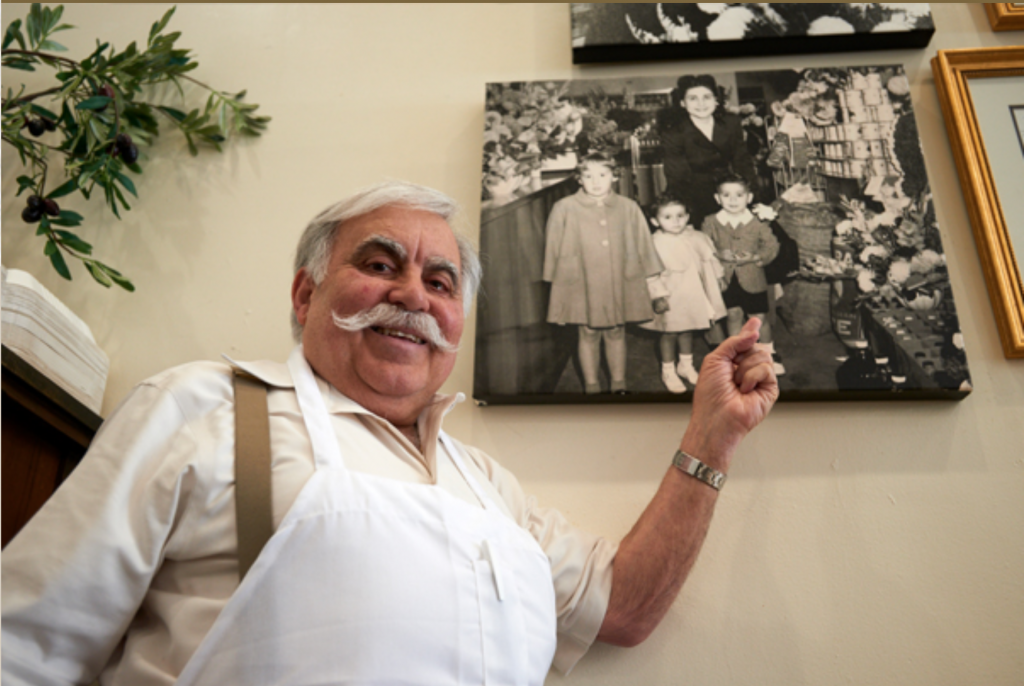
If I was a pure restaurant, I’d be worried.Most restaurants are going to lose a great portion of their seating. We’re not a pure restaurant, so it’s a little different for us. To survive, they will have to start thinking outside the box.They’ll need to reach out and invite more people in. You can’t just work with your local neighborhood.We have to become interesting to everybody.On social media, we post pictures, articles, menus—as many things as we can to keep people interested in our store.We want to stay interesting without changing our flavor.
You have to set a stage with your atmosphere.It has to have character, and it has to include interactions with customers.We even have a valet.We take care of people so that their experience coming in is the best experience they’ve had all day.You have to respect them every time you come in.You can’t look at customers who come in and think you’ve got ’em.Because you don’t.
This pandemic will be over one day.People will have more choices.You want them to keep thinking about you.If you’re not in front of them, you’ll be forgotten.
















